
Oliver79
-
Gesamte Inhalte
693 -
Benutzer seit
-
Letzter Besuch
Beiträge von Oliver79
-
-
Neues von Raymond Alessandrini und Nicola Piovani gibt es aber nächster Woche bei Music Box Records:
 Zitat
ZitatWorld Premiere CD Release. Remastered edition.
8-page CD booklet with French and English liner notes by Gilles Loison.Music Box Records proudly launches a new collection dedicated to original television series: Great Television Soundtracks. In collaboration with Sony/ATV Music Publishing France, the label is pleased to unveil the titles of the first volume with the premiere CD release of the scores from the French TV series Les Colonnes du ciel (Heaven's Pillars, 1985) and Félicien Grevêche (1986) composed and conducted by Raymond Alessandrini.
Adapted by Bernard Clavel from his novel, the French historical five-episode series Les Colonnes du ciel, directed by Danish director Gabriel Axel, is about the conquest of the Franche-Comté province by the armies of King Louis XIII of France during his war against Spain (Ten Years’ War).
The French drama eight-episode series Félicien Grevêche, directed by Michel Wyn, tells the story of a countryside physician who works in difficult conditions in Languedoc (Southern France) in the 19th century. The creator and actor, Sylvain Joubert wrote a very well-documented original script about this transitional period when medicine was progressing thanks to the discoveries of Louis Pasteur.
Raymond Alessandrini uses a large orchestra to convey the adventurous spirit of the two series. Both scores showcase a wide range of dramatic passages, epic orchestral pieces, intimate musical cues tinged with folk elements and ethnical flavored pieces. The composer states that these two scores are among his best works thanks to the complete freedom that both Gabriel Axel and Michel Wyn let him enjoy.
Remastered from the original recording sessions, the program has been supervised by Raymond Alessandrini. The CD comes with an 8-page booklet with liner notes by Gilles Loison, discussing the films and the scores including new comments by the composer on his collaboration with the two directors. The release is limited to 300 units.
 Zitat
ZitatRemastered and expanded edition.
8-page CD booklet with liner notes by Gergely Hubai.In collaboration with Gruppo Sugar, Music Box Records is proud to present not one, not two, but three Nicola Piovani scores.
Dolce far niente (Sweet Idleness, 1998) by Romanian filmmaker Nae Caranfil explores the life French author Henri Beyle aka Stendhal during his times in Italy as he gets mixed up in romantic intrigue and political machinations. Piovani's music adapts some of the most popular Italian tunes to cover the friendship of Stendhal and Rossini - the package is rounded out with the song by "Quando il sole spunterà" ("When the Sun Comes Up") by actor/singer Pino Ingrosso.
Le ambizioni sbagliate (1983), directed by Fabio Carpi, is a television adaptation of Alberto Moravia's novel about an unhappy marriage between a journalist and his socially higher ranking wife. The TV production has a short, mostly strings based underscore underscoring the strains of married life.
Marco Bellocchio’s Gli occhi, la bocca reunites the director with Lou Castel, the actor who helped kickstart the director’s career with I pugni in tasca (1965). As a failed actor returns home for the funeral of his twin brother, he finds himself doing his greatest performance, filling up a hole in the life of his recently widowed sister-in-law. This most unusal romance gets a beautiful underscore with two separate ideas underlining the relationship, including a wonderful piano piece and a folksy waltz.
Out of the three scores, only Dolce far niente had a previous CD release with about 15 minutes of music. This new CD expands on that length by almost doubling the program and including Le ambizioni sbagliate and Gli occhi, la bocca, two previously unreleased soundtracks. This present edition has been fully remastered from the session tapes and includes an 8-page booklet with liner notes by Gergely Hubai, discussing the films and the scores. The release is limited to 300 units.
-
Sehr schräg, ich hoffe das zumindest kleinere Labels weiterhin Zugriff auf das Archiv haben werden. Aber irgendwie habe ich da derzeit nicht so ein gutes Gefühl.
-
Don Harper hieß auch ein rühriger Library-Komponist, der u. a. auch für Doctor Who tätig war. Aber der ist schon 1999 verstorben, was eine Mitwirkung an diesem aktuellen Projekt relativ unwahrscheinlich erscheinen lässt. ^^
-
 Zitat
ZitatQuartet Records and Gruppo Sugar presents the premiere presentation of two previously unreleased Stelvio Cipriani groovy scores, both focused on dramas taking place in the Years of Lead (a period of social and political turmoil in Italy that lasted from the late 1960s until the late 1980s).
Adimaro Sala’s LA NOTTE DELL’ULTIMO GIORNO (1974) chronicles the making of a fictional thesis film entitled LA FIAMMATA as director Beppe Banti (Tony Kendall) tries to realize his vision without compromising with the producer or being discouraged by the suicide of his screenwriting partner. Cipriani offers a breezy counterpoint to the emotional trauma of the misunderstood filmmakers with an exciting main theme and a sensual cue for a forbidden affair.
Lucio De Caro’s PROCESSO PER DIRETISSIMA (1972) takes both terrorism and police brutality as the basis of its story, as an assault on a train leads to the arrest of left-wing activist Stefano Baldini (Michele Placido). When his four-day interrogation ends with his death, journalist Cristina Visconti (Ira von Fürstenberg) decides to investigate the story. The program presents Cipriani’s original music as it was written and recorded, before getting spliced up and inserted in the movie in 20-40 second chunks.
Mastered by Claudio Fuiano from first-generation stereo master tapes, the 8-page liner notes by Gergely Hubai discuss the composer, the films and the scores.
-
 Zitat
ZitatQuartet Records and Gruppo Sugar presents a double-program CD with remastered, slightly expanded reissues of two of the most important collaborations between composer Philippe Sarde (THE TENANT, GHOST STORY, THE BEAR, QUEST FOR FIRE) and director Claude Sautet.
MAX ET LES FERRAILLEURS (1971), starring Michel Piccoli and Romy Schneider (both of whom had appeared the year before in Sautet’s LES CHOSES DE LA VIE), is a classic French polar. It contains one of the most vibrant and exciting scores composed by Philippe Sarde, with a killer main theme and a highly vigorous underscore. Pema in France released a 26-minute LP to coincide with the release of the film; it was reissued on CD twice by CAM, but always with errors. The main theme was mastered at the wrong speed, two stereo cues were presented in mono, and one of the coolest tracks on the LP (“Le bal des ferrailleurs”) was omitted. In this new edition, we have included the album in its correct and complete form, as well as a suite (in mono) with eight minutes recorded by Sarde and unreleased until now.
VINCENT, FRANÇOIS, PAUL ET LES AUTRES (1974) was a bittersweet drama about four friends at mid-life and their existential and disenchantment problems. Philippe Sarde composed one of his most memorable and nostalgic melodies, performed by the bandoneon of Marcel Azzola. Released on LP by Polydor and reissued on CD by CAM almost 30 years ago, it was an album that needed to be revised and remastered. Although the LP included virtually the entire score written by Sarde for the film, we have added the original music composed for the trailer, which features an unusual version of the main theme.
This album has been conceived and sequenced by Edouard Dubois and supervised by the composer, restored and mastered by Chris Malone from first-generation stereo master tapes. The 16-page booklet includes detailed liner notes by Christian Lauliac discussing the relationship between the composer and director, the films and the scores. Quotes from a new interview with Philippe Sarde are included.
-
GAD Records haben am Freitag ein neues Album mit polnischer TV-Musik veröffentlicht:
 Zitat
ZitatTwo orchestra suites crafted by the composer based on the original scores from “Doktor Murek” TV series, recorded in 1979 by the Polish Radio and TV Orchestra in Warsaw, directed by Jan Pruszak. “Doktor Murek” in the most tasty and condensed form ever.
“Doktor Murek” series by Witold Lesiewicz tells the story of the professional and moral decline of its main character, created by Jerzy Zielnik. The tumultuous life of the failed lawyer (and a conman), depicted with the wider picture of the Second Republic of Poland in the background, captivated the viewers. What left the lasting impression was the soundtrack by Lucjan Kaszycki who, at the time of “Doktor Murek” premiere, had already had a long career in the world of the film music (marked, among all, by the cooperation with Wojciech Jerzy Has). He was a seasoned composer who brought to Lesiewicz’s TV series the diversity which worked well with the alternating ambience of each of seven series episodes. You can hear it perfectly well in suites composed almost in parallel with the actual sound illustrations. These are broad, intriguing forms, with lush string parts (and some Rhodes piano as well!).
The recordings of both suites have been remastered from original tapes stored in the archives of the Polish Radio. The booklet presents some stills from the set and a short essay on the series and its soundtrack. The album is a new addition to the series published by GAD Records which until now has featured (among others): “Dzięcioł” by Henryk Kuźniak and Juliusz Loranc, “07 zgłoś się” by Włodzimierz Korcz and “Tulipan” by Andrzej Korzyński. More to follow!
-
Ah, stimmt!! Hatte ich ganz anders abgespeichert.
-
Bei der Miniserie könnte es sich auch um etwas von Paul Chihara handeln. Der hat in den 80ern Miniserien vertont, der Dekade entsprechend vermutlich auch mit Synthies und er ist anscheinend nicht abgeneigt, seine Scores notfalls auch neu einzuspielen, wie die letzte Chihara-CD von Dragon's Domain gezeigt hat.
-
Von Cinema-Kan kommen im Juni und Juli drei weitere Veröffentlichungen:
A Cold Is My Passport - Harumi Ibe
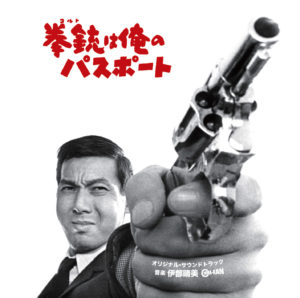
Cyborg 009 / Cyborg 009 - Monster War (2 CDs) - Taichiro Kosugi
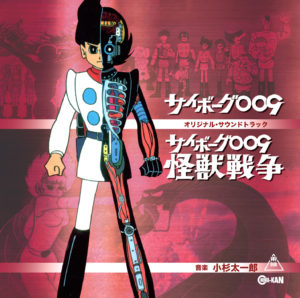
Ogôn batto - The Golden Bat - Shunsuke Kikuchi
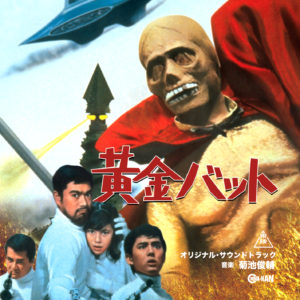
-
Von Music Box Records kommen am 8. Juni zwei CDs mit Scores von Éric Dermarsan:
 Zitat
ZitatIn collaboration with Cinétévé and Mediawan Rights, Music Box Records is proud to present on CD the original score composed by Éric Demarsan for the French television series Romance (Wonderland, 2020) directed by Hervé Hadmar and starring Pierre Deladonchamps, Olga Kurylenko, Pierre Perrier, Barbara Schulz, Simon Abkarian and Anne-Sophie Soldaini.
This new series from Hervé Hadmar explores his preferred genres of thriller and fantasy, as seen in his previous works (Forgotten Girls, Pigalle, la nuit and Witnesses). This is a story about a mysterious woman, pretty as a picture. A woman in danger. A woman who refuses to love and to be loved. Of a man who travels, from Paris to Biarritz, and finds himself lost during the summer of 1960.
The score of Romance, composed by Éric Demarsan, is mysterious and lyrical, revealing his ability to capture the universe of this romantic thriller series.
This limited edition CD comes with an 8-page booklet featuring director Hervé Hadmar's statement.
 Zitat
ZitatWorld Premiere CD Release.
Remastered and expanded edition.
8-page CD booklet with French and English liner notes by Sylvain Pfeffer.In collaboration with Universal Publishing Production Music and Éric Demarsan,, Music Box Records presents the premiere CD release of the original soundtracks of Jean Pourtalé’s only two feature films composed by Éric Demarsan (Army of Shadows, Attention, the Kids Are Watching): Demain les mômes (Tomorrow's Children, 1976) and 5% de risque (1980).
For Demain les mômes, Éric Demarsan uses synthesizers and electronic effects which are perfectly suited to the post-apocalyptic atmosphere of the film. Two themes dominate the score: Philippe’s theme and the kids’ theme. The first one (Thème de Philippe) is played on the piano with reverb effects. Doubled with strings (Demain les mômes) and completed with the intervention of a harmonica, this piece gives a certain Western-like quality to some of the scenes. With very few dialogues, the film leaves a lot of room for the music to express iself.
For 5% de risque, the score is based on two themes. The first one, which can be heard as early as the opening credits (Générique début), is built on five notes inscribed in a bitonality that creates a climate of strangeness and unease. The tracks La trace and Le chasseur develop the second motif, characterized by chords suites favouring unpredictability in the harmonic progression.
The two scores have been fully mastered and expanded from the scoring session elements. The package includes an 8-page booklet featuring exclusive liner notes by writer Sylvain Pfeffer and new comments by Éric Demarsan on his collaboration with Jean Pourtalé. Limited edition of 300 units.
-
Ganz genau, da gab es nie ein eigenes Album, weder von dem Goodwin-Score, noch von der abgelehnten Mancini-Komposition.
-
Von Cinema-Kan sind letzte Woche zwei Alben mit Nobuyoshi Koshibes Musik aus der japanisch-französischen Animationsserie Die mysteriösen Städte des Goldes (1982 - 83) erschienen.
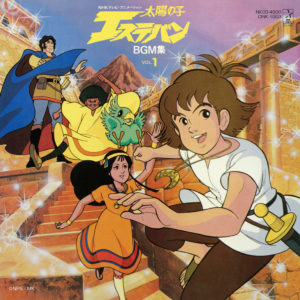
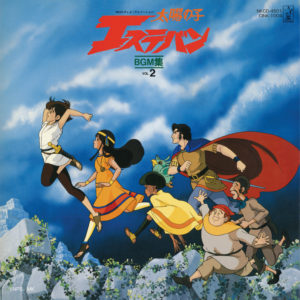
-
 Zitat
ZitatQuartet Records and Gruppo Sugar present a mammoth 2-CD set with the complete epic scores by Angelo Francesco Lavagnino (FALSTAFF, THE NAKED MAJA, VENERE IMPERIALE, LEGENDS OF THE LOST) for the exotic diptych directed in 1963 by Mario Camerini: KALI-YUG, LA DEA DELLA VENDETTA and IL MISTERO DEL TEMPO INDIANO, starring Paul Guers, Senta Berger, Claudine Auger and Lex Barker.
Although it was initially shot as one three-hour epic, the producers finally decided to split it and release it as two different films of 90 minutes each. Set in India during British rule, the films featured vengeful goddesses, murders, exotic dancers, lovers, traitors, battles and great palaces.
The rich, versatile and powerful epic score composed by Angelo Francesco Lavagnino—one of the scores most appreciated by his fans—is a study of the clash between two different musical cultures. Since the conflict arises from British interference in India, the composer divided the score into these two perspectives.
Lavagnino’s music for KALI-YUG, LA DEA DELLA VENDETTA and IL MISTERO DEL TEMPIO INDIANO should be viewed as one continuous piece of scoring. (In fact, both were recorded at the same sessions under the baton of Carlo Savina.) The composer wrote and recorded the music for the two movies just as if he were working on one film. There are, however, some differences to be noted. He composed a bit less music for the sequel since some cues were simply repurposed from the first movie. It should be mentioned that certain cuts of IL MISTERO DEL TEMPIO INDIANO begin with a summary of KALI YUG—this was also tracked with existing cues and the editing was so crude that it is not worth recreating. But the only music repeated on both CDs is the opening credits cue, which is meant to lend a more cohesive structure to the second disc.
Only a 36-minute LP from KALI-YUG was released on LP by CAM at the time of the film, and it was reissued on CD by the same company in the early 1990s. Now, all the music recorded for both films is available for the first time. This collection has been entirely produced and supervised by Claudio Fuiano, restored and mastered by Chris Malone from first-generation master tapes. The colourful booklet includes detailed liner notes by Gergely Hubai, discussing the films, the composer and the scores.
-
 Zitat
ZitatQuartet Records and MGM proudly present the world premiere release of the original score to the 1983 family comedy MR. MOM, composed by Lee Holdridge (SPLASH, THE BEASTMASTER, EL PUEBLO DEL SOL, OLIVER’S STORY). Written by John Hughes, the hit film tells the story of a recently unemployed Detroit automotive engineer (played by Michael Keaton), who becomes a stay-at-home dad while his wife (Teri Garr) returns to a career in the advertising business.
Holdridge’s score is a sheer delight, providing a sophisticated component to the film. Descriptive, romantic, funny… thirty-seven years after its recording, it’s finally being released.
Working from recently located original mono ¼” tapes and 35mm 3-track mag, the CD contains the main score presentation and additional source music in mono, with surviving stereo tracks presented separately. This collection has been produced, edited and remixed by Neil S. Bulk, and mastered by Doug Schwartz, all with the composer’s approval. The full color package includes liner notes by Al Kaplan, featuring new comments from Holdridge.
-
-
Neben dem De-Angelis-Score kommen von Beat Records am 10. Juni noch eine Italo-Western-Score von Vasco Vassil Kojucharov und eine Morricone-Neuauflage:
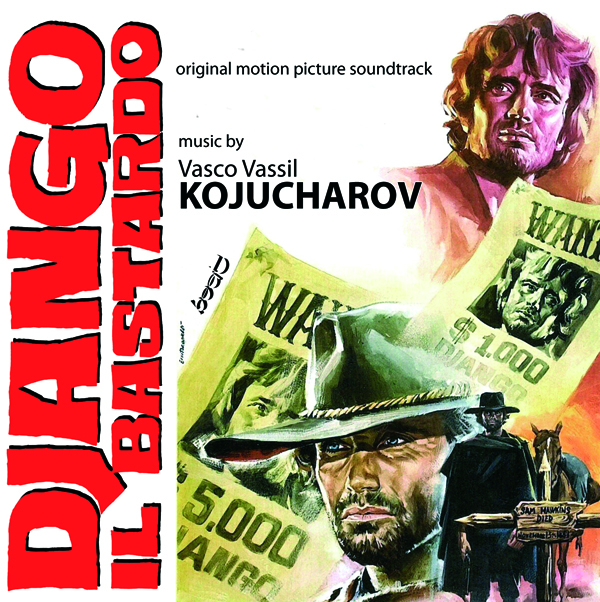 Zitat
ZitatDirected by Sergio Garrone, Django il bastardo (1969) is considered by critics to be one of his best films. Here we have one of the most iconic Spaghetti Western characters, Django, in one of his final movies, this time played by Anthony Steffen.
It's not the first time Vasco Vassil Kojucharov (a Maestro very dear to our publishing group) scored this character. Thanks to the Nomus association, archivist of the Kojucharov fund, we retrieved four master tapes and many documents from the recording session for this soundtrack, which—coming as no surprise, being a representative example of its genre—reveals all of the musical skills of the Maestro. His immensely creative vein is evident from the main titles, which—performed with typical instrumentation for Italian Western movies—winks an eye to the spy genre.
A wonderful unreleased score, finally available for your listening pleasure. The CD comes in a jewel case, with mastering by Enrico De Gemini, a 12-page booklet with graphic design by Daniele De Gemini and liner notes by Alessandro Bratus (English-language translation edited by Josh Mitchell).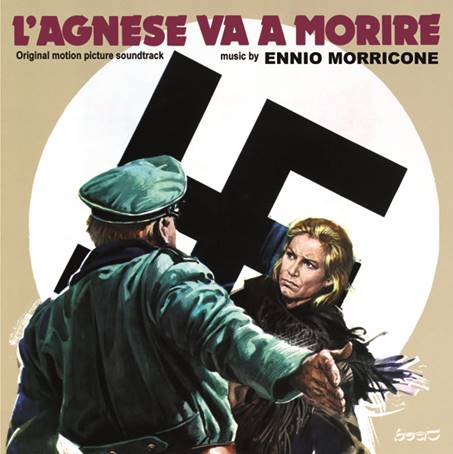
L'agnese va a morire is one of the most successful collaborations between director Giuliano Montaldo and composer Ennio Morricone. The composer, availing himself of exceptional soloists such as De Gemini on harmonica, Carnini on organ, Valdambrini on flugelhorn, Enrico Pierannunzi on piano and the dramatic vocals of Clara Murtas to create the appropriate atmosphere to describe life turned upside-down by Nazism during WWII, during the 8 months preceding the liberation of Italy from German occupiers. Morricone alternates sacral moments with dissonance to describe this dark period of Italian history. We used a first-generation stereo master prepared in 1977 for a 33rpm that was never released, now fully restored for an exceptional listening experience.
The CD is released in the classic CDCR series with mastering by Daniel Winkler and Claudio Fuiano, liner notes by Patrick Bouster and graphic design by Daniele De Gemini, featuring the original poster art by Renato Casaro on the cover.
- Beat Records -
"Courageous" habe ich mir schon bei der ersten Wasserstandsmeldung zugelegt. In der Tat eine tolle Veröffentlichung.
-
Von Notefornote Music gibt es eine CD mit Steve Dorffs Score zu einem religiösen Erweckungsdrama aus dem Jahr 2017.
 Zitat
ZitatCD & Digital bundle - CD now shipping with a bonus 16/44khz download available upon purchase.
The Meanest Man In Texas: Original Motion Picture Soundtrack
Music Composed by Steve Dorff
Featuring the song, "Grace (Will Lead Me Home)" performed by Mary Millben
NFN Catalog # NFN-9028
UPC: 850001545266Based on the bestseller, "The Meanest Man in Texas" is the true story of Clyde Thompson. In 1928, a young Clyde finds himself in the wrong place, at the wrong time and in the wrong company.
After shooting two men in self-defense, Clyde is convicted of murder and sentenced to death. Just hours before execution by electric chair, the Governor spares him the death penalty, but he is shipped to the Texas Prison Farm to serve hard labor, where he gains the moniker "The Meanest Man in Texas". The story follows Clyde's journey as his personal roller-coaster ride takes him on some life-changing highs and lows, but ultimately leads him to redemption.
The Meanest Man In Texas features an original score by acclaimed music producer, composer and songwriter Steve Dorff and one song by singer Mary Milben.Original Score Composed, Orchestrated and Conducted by Steve Dorff
-
Wieder mal schöne Beiträge, danke Angus!

-
Nach der Coronda-bedingten Zwangspause haben Music Box Records Ende letzter Woche wieder zwei CDs veröffentlicht:

ZitatWorld Premiere CD Release. Remastered edition.
12-page CD booklet with French and English liner notes by Gérard Dastugue.In collaboration with BMG and Pathé Films, Music Box Records continues their collaboration with Philippe Sarde and proudly presents here two previously unreleased scores written a few years apart for two films that achieved public success at the time they came out.
Le Fils préféré (The Favourite Son, 1994) is Nicole Garcia’s second film as a director, four years after her first feature film Un week-end sur deux. The film tells the story of Jean-Paul Mantegna (Gérard Lanvin) who, facing great financial difficulties, asks his father Raphaël (Roberto Herlitzka) for money, as well as his two brothers (Bernard Giraudeau and Jean-Marc Barr), but none of them can help him. The family is torn by disputes and tragic events until Jean-Paul discovers the secret of his own destiny. Recorded at Abbey Road studios, the score is written for violas, cellos and double basses. Philippe Sarde collaborated here with the legendary Lee Konitz, a saxophonist whose fluid, almost sensual sound developed along with the ‘cool jazz’ trend.
With Mademoiselle (2001), Philippe Lioret, a former sound engineer for cinema directed his third feature film, written and shot for Sandrine Bonnaire. She plays Claire, a married woman with two children, who meets Pierre (Jacques Gamblin), a comedian and improviser who gets her to play his game. The score was recorded with the London Symphony Orchestra at the Abbey Road studios and at the Guillaume Tell studios for a special jazz session with an incredible trio led by Maurice Vander at the piano.
This album presents an intimate and sensitive aspect of Philippe Sarde’s music between film noir gloominess and romantic glow and will no doubt fall under the spell of this elegant Ravel-style simplicity.
Remastered from the original recording sessions, the program has been assembled, produced and supervised by Philippe Sarde and Dominique Spagnolo. The CD comes with a 12-page booklet with liner notes by Gérard Dastugue, discussing the films and the scores including new comments by Philippe Sarde on his collaboration with the two directors. The release is limited to 500 units.
 Zitat
ZitatWorld Premiere CD Release. Remastered edition.
8-page CD booklet with French and English liner notes by Nicolas Magenham.In collaboration with Larghetto Music, Music Box Records is pleased to present the premiere CD release of two Paul Misraki scores: Les vécés étaient fermés de l'intérieur (directed by Patrice Leconte) and Le Chasseur de chez Maxim’s (directed by Claude Vital).
With its nonsensical spirit reminiscent of British humour, Patrice Leconte’s first feature film, Les vécés étaient fermés de l’intérieur, tells the story of police chief Pichard who investigates the death of a toilet attendant. Such is the synopsis of this cult film inspired by the adventures of Bougret and Charolles, two characters from the French comic book series Rubrique-à-brac. The script was co-written by Leconte and the author of said series, Marcel Gottlieb aka Gotlib. Paul Misraki’s music pays tribute to the refined codes of Hollywood film noir (the recurring use of cellos, spooky crescendo strings tremolos, the solo saxophone conveying a feeling of dangerous and toxic seduction…) with some offbeat and elegant style representing his lighter side.
For Le Chasseur de chez Maxim’s (Maxim's Porter), Paul Misraki composed a rejoicing collection of light dance pieces typical of the interwar period, in which the film is set. From the tango to the blues, to the fox-trot and the Charleston, the wide diversity of styles presented here is characteristic of Misraki’s work.
This present edition features the previously unreleased and complete score to Les vécés étaient fermés de l'intérieur and the remastered original LP program for Le Chasseur de chez Maxim’s (previously issued by Pathé Marconi EMI). The 8-page booklet features an essay by Nicolas Magenham discussing both films and scores. The release is limited to 300 units. -
Anfang Juni kommt von Omnivore Recordings eine Neuauflage von Curtis Mayfields Score für die Gaunerkomödie Let's Do It Again (1975) von und mit Sidney Poitier sowie Bill Cosby. Neben dem Albumprogramm enthält diese Edition noch drei Single-Cuts der Staple Singers als Bonus-Tracks.

-
Argh, ja, natürlich!!

-
Den würde ich auch gerne mal sehen... die literarische Vorlage von Cornell Woolrich ("I Married a Dead Man") ist in der Tat bei Filmemachern recht populär. So gibt es eine japanische Verfilmung aus den 1960ern, eine französische Adaption mit Isabelle Huppert (der Score von Philippe Sarde dazu ist auch auf CD erschienen) und mit Mrs. Winterbourne sogar eine Bearbeitung in Form einer Romantic Comedy mit Rikki Lake und Shirley MacLaine.
-
In der ersten Mai-Woche gibt es drei neue Alben von Dragon's Domain Records:
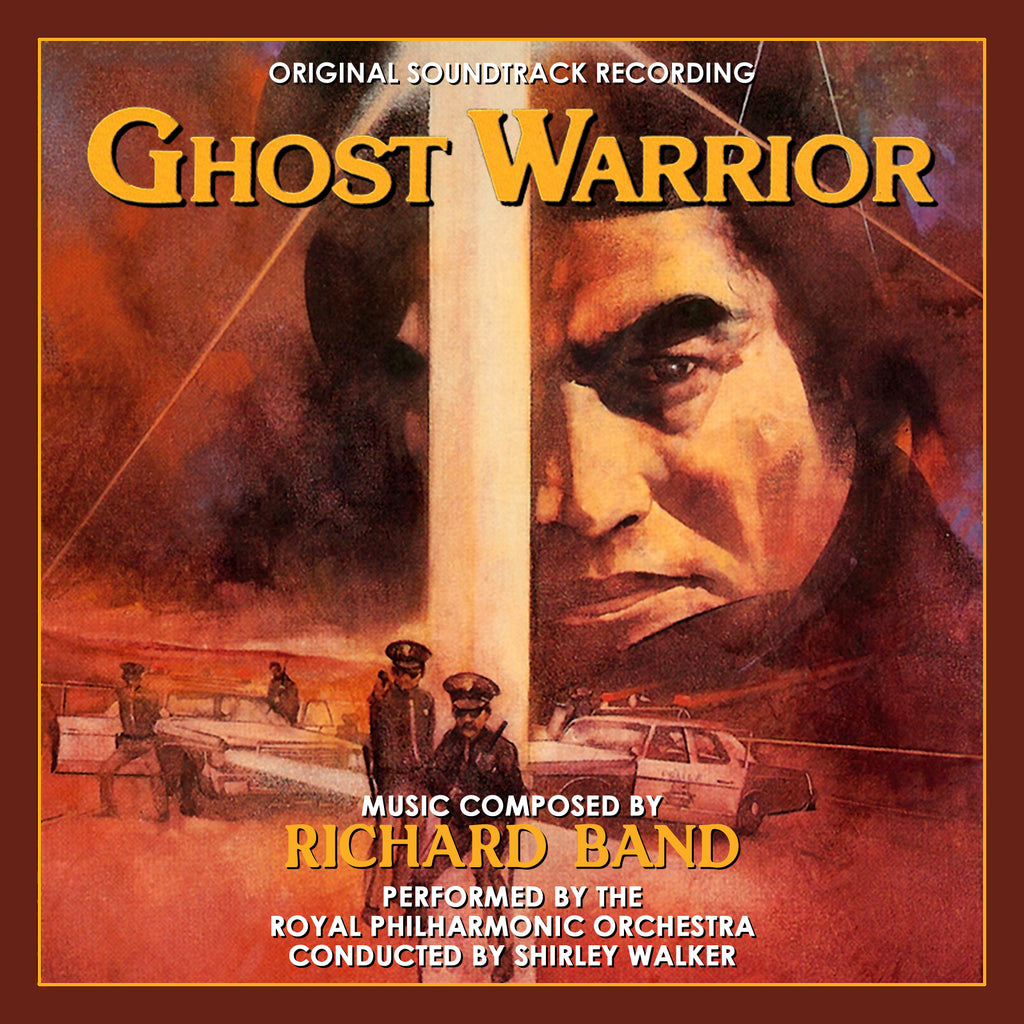 Zitat
ZitatDragon’s Domain Records presents a new release of GHOST WARRIOR, to be distributed through buysoundtrax.com. GHOST WARRIOR features music composed by Richard Band for the 1984 science fiction/action film directed by J. Larry Carroll, written by Tim Curnen, starring Hiroshi Fujioka, John Calvin, Janet Julian, Charles Lampkin, Frank Schuller and Robert Kino.
Released in 1984, GHOST WARRIOR tells the story of Yoshimitsu, a renowned samurai in 16th Century Japan, who is wounded in a swordfight while trying to protect his wife from brigands. Yoshimitsu falls into an icy lake where he is quickly frozen. 432 years later his corpse is discovered in an ice cave and turned over to scientists in Los Angeles, who are hired to conduct an autopsy of the body. The team is led by Dr. Richards, who decides to try and revive the ancient corpse instead. Remarkably, the procedure is successful but Yoshi escapes when disturbed by a greedy security guard who tries to steal and pawn his katana sword. Fighting his way from the suburbs to downtown L.A., Yoshimitsu for all his mastery of swordplay and perception of Japanese culture circa 1552 is unable to comprehend 20th Century America, and can only defend himself at swordpoint after he runs afoul of a local street gang and, ultimately, the LAPD, leading to a tragic conclusion.
The score for GHOST WARRIOR is a fusion of symphonic orchestral music, ethnic Japanese flutes and percussion, and an array of unusual percussion instruments invented and constructed by early 20th Century American composer Harry Partch (1901-1974). When Band got the assignment to score GHOST WARRIOR, he realized there was an opportunity to achieve something distinctive by combining ethnic Japanese instruments with the unique and versatile instruments of Partch. Band did some research on Partch’s instruments at the UCLA library. His first challenge was in figuring out how to communicate to musicians playing these instruments who are used to reading normal sheet music. At the same time, Band discovered that the top percussion player in Los Angeles, Emil Richards, had been Partch’s main disciple and had inherited all of Partch’s instruments. The Harry Partch percussion instruments were recorded in Hollywood at Group IV, a recording studio that no longer exists. The orchestral portions of the score were later performed by the Royal Philharmonic Orchestra, conducted by Shirley Walker, who may have been the first woman to conduct the Royal Philharmonic for a film session. The end result is an expansive orchestral score that merges extremely unique percussive sounds with a richly symphonic melody structure accentuated by ethnic Japanese instruments.
Richard Band was born in Los Angeles on December 28, 1953. He is the son of film producer-director-writer Albert Band (THE RED BADGE OF COURAGE – screen adaptation), brother to producer-distributor Charles Band and uncle to young rock star Alex Band of the rock group ‘The Calling’. Shortly after his brother Charles had formed his first movie company, Richard decided to take a break from music and began to work as an assistant director on some of his films. He then went from assistant director to production manager, to associate producer and finally producer on over 13 films. Richard has since gone on to score over 75 feature films and many television productions including multiple episodes of STARGATE SG-1, WALKER: TEXAS RANGER and Disney's SING ME A STORY series.
Richard has composed the music for more than 10 interactive computer/video games over the years and has had many soundtracks that have been released of his film works. Richard has also scored many documentaries including the award-winning series’ MOST DECORATED, BRUTE FORCE and WEAPONS OF WAR and has also contributed much music to other series’ like THE REAL WEST, CIVIL WAR JOURNALS and BIOGRAPHIES. His experience over the years has brought him to record over 22 film scores with internationally renowned orchestras such as THE ROYAL PHILHARMONIC ORCHESTRA, THE LONDON SYMPHONY and THE ROME PHILHARMONIC. He has also had his music recorded in Prague, Romania, Croatia and Munich. In more recent years, Richard has also enjoyed scoring a variety of family and comedy films for Viacom and Paramount Pictures as well as hundreds of animated vignettes for the WB kid's network all of which were scored with orchestra. His musical talents can also be heard on several amusement park rides including ALIENS - THE RIDE as well as several Vegas venues. Among the many interactive games Richard has scored the music for STAR TREK, WATERWORLD, CASPER, STONEKEEP, DECENT UNDER MOUNTAIN, CLAYFIGHTER and INVICTUS: THE SHADOW OF OLYMPUS.
Dragon’s Domain Records is excited to bring the soundtrack to GHOST WARRIOR back to the marketplace with the music freshly remixed by Matt LaPoint from the score’s original 8-track masters, which the composer was only recently able to find, digitally remastered by James Nelson at Digital Outland, including liner notes written by author Randall Larson, with the participation of the composer.
GHOST WARRIOR is a limited edition release of 500 units. GHOST WARRIOR is expected to begin shipping the week of May 4th, 2020 and can be ordered at www.buysoundtrax.com . The first 100 copies ordered trough the buysoundtrax.com website will be autographed by the composer at no extra charge.
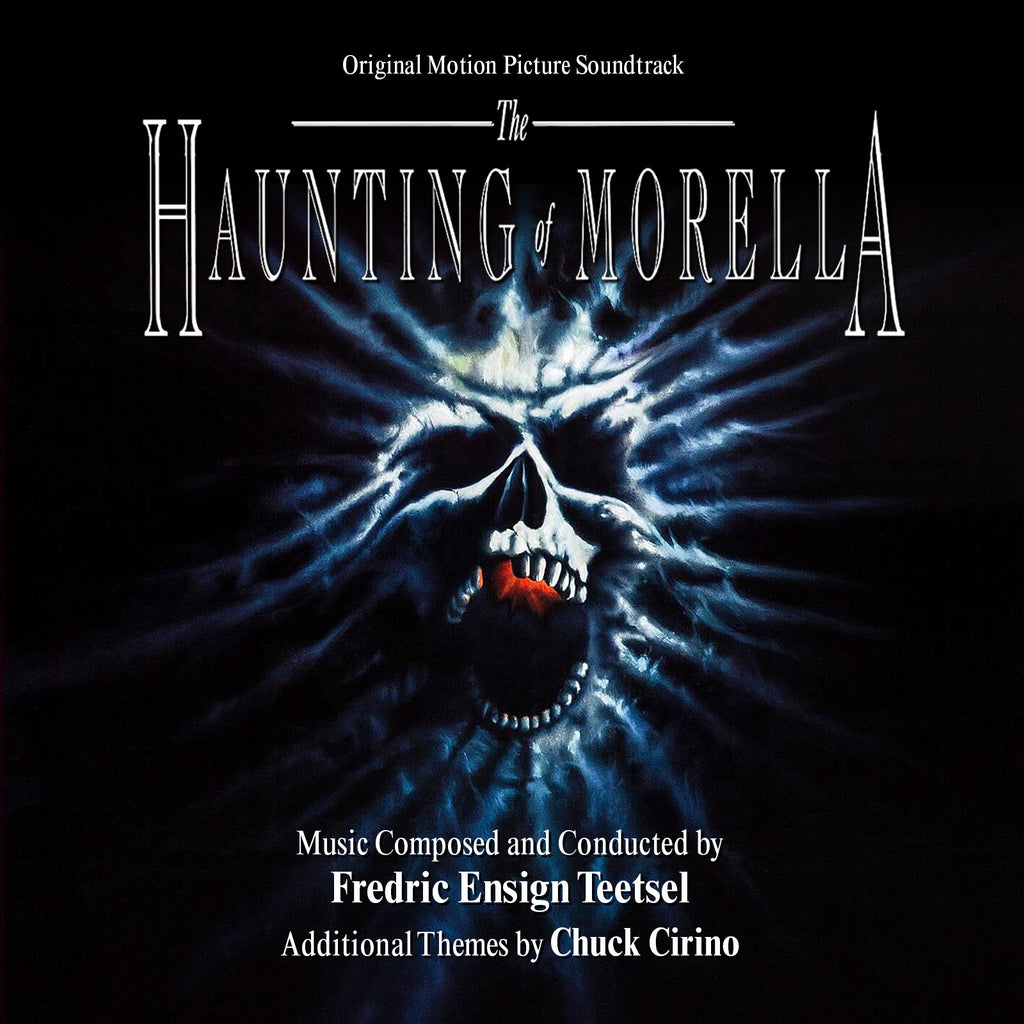 Zitat
ZitatDragon’s Domain Records, to be distributed through buysoundtrax.com presents the original motion picture soundtrack to THE HAUNTING OF MORELLA, featuring music composed by Fredric Ensign Teetsel, with additional themes by Chuck Cirino, for the 1990 horror film produced by Roger Corman, directed by Jim Wynorski, written by R.J. Robertson, based on a story by Edgar Allan Poe, starring Nicole Eggert, David McCallum, Christopher Halsted, Lana Clarkson, Maria Ford, Gail Thackray, Clement von Franckenstein and Deborah Dutch.
THE HAUNTING OF MORELLA is very loosely based on Edgar Allan Poe’s short story “Morella,” written in 1835 and revised in 1839. In Poe’s story, Morella is a woman who dies in childbirth but her spirit re-inhabits the body of her young daughter only to have the child die young, returning Morella’s spirit into death along with her. Corman filmed a short version of the story as part of his 1962 anthology film TALES OF TERROR. Scripted by Richard Matheson, this loosely adapted version of “Morella” gave the daughter a name: Lorena. THE HAUNTING OF MORELLA modified the story further, retaining the daughter’s name Lorena, but setting the story in the midst of Colonial America as Morella is crucified for witchcraft, leaving her infant daughter in the care of her widower. Resurrected through blood sacrifices offered by her daughter’s governess, Morella is able to take over Lorena’s body and use it to achieve a physical resurrection. THE HAUNTING OF MORELLA harkens back to Corman’s acclaimed Edgar Allan Poe films—THE FALL OF THE HOUSE OF USHER, THE PIT AND THE PENDULUM, THE TOMB OF LIGEIA, THE HAUNTED PALACE, and others from the 1960s.
Wynorski’s regular composer, Chuck Cirino, was not able to work on this film so Concorde hired a first-time film composer named Fredric Teetsel, who was able to provide MORELLA with a symphonic orchestral score. What became the film’s main theme was a simple melody of Cirino’s that Wynorski was especially fond of, and has insisted on using in several of his films. In addition to Cirino’s themes, Teetsel composed several themes or motifs of his own, but even these were rooted in Cirino’s thematic architecture. Teetsel’s connections as an arranger and composer for performing orchestras in Arizona, including the state’s major symphony orchestra, allowed the film to have a period-supporting orchestral score without exceeding its budget.
Fredric Teetsel was born and raised in Phoenix, Arizona, and has been involved with a number of orchestras there. A graduate of the Groves School of Music, Teetsel found work orchestrating and conducting; he was Composer in Residence for the Scottsdale Symphony Orchestra in Arizona from 1983-1986 and 1986-1989 found him an in-house composer producing commercial jingles for local television and radio. He moved back to Los Angeles in 1989 and began visiting movie studios in the hopes of becoming involved in film scoring. One of them was Corman’s Concorde Pictures and THE HAUNTING OF MORELLA would be his first film score. His ongoing relationship with four professional orchestras in Arizona has supplied him with opportunities for commissions for pop orchestra arrangements and original compositions.
Chuck Cirino has worked as a producer, director, filmmaker, videographer, animator, special effects technician, editor, and composer. He has scored films for Roger Corman, directed music videos for bands like Earth, Wind & Fire and The Dickies’ KILLER KLOWNS FROM OUTER SPACE, and has recorded over 40 music soundtracks for feature films including SORCERESS, HARD TO DIE, TRANSYLVANIA TWIST, and many others. Most recently, he has scored A DOGGONE CHRISTMAS, A DOGGONE HOLLYWOOD and A DOGGONE ADVENTURE. He executive produces and directs WEIRD TV, a television series featuring weird Americans, bizarre news, unbelievable events and outlandish skits. Chuck’s credits also include executive producer and director of the Sci Fi Channel projects, WORLDWIDE WEIRD and WARPED IN SPACE, and BABERELLAS, an independent Sci Fi feature distributed by Xenon Pictures.
Dragon’s Domain Records is excited to bring THE HAUNTING OF MORELLA to compact disc for the first time, mastered by James Nelson at Digital Outland with exclusive liner notes by author Randall Larson, with the participation of the composers.
THE HAUNTING OF MORELLA is a limited edition release of 500 units. As a special offer, the first 50 people to order the album from the record label’s website will have their copy autographed by the composers at no additional charge.
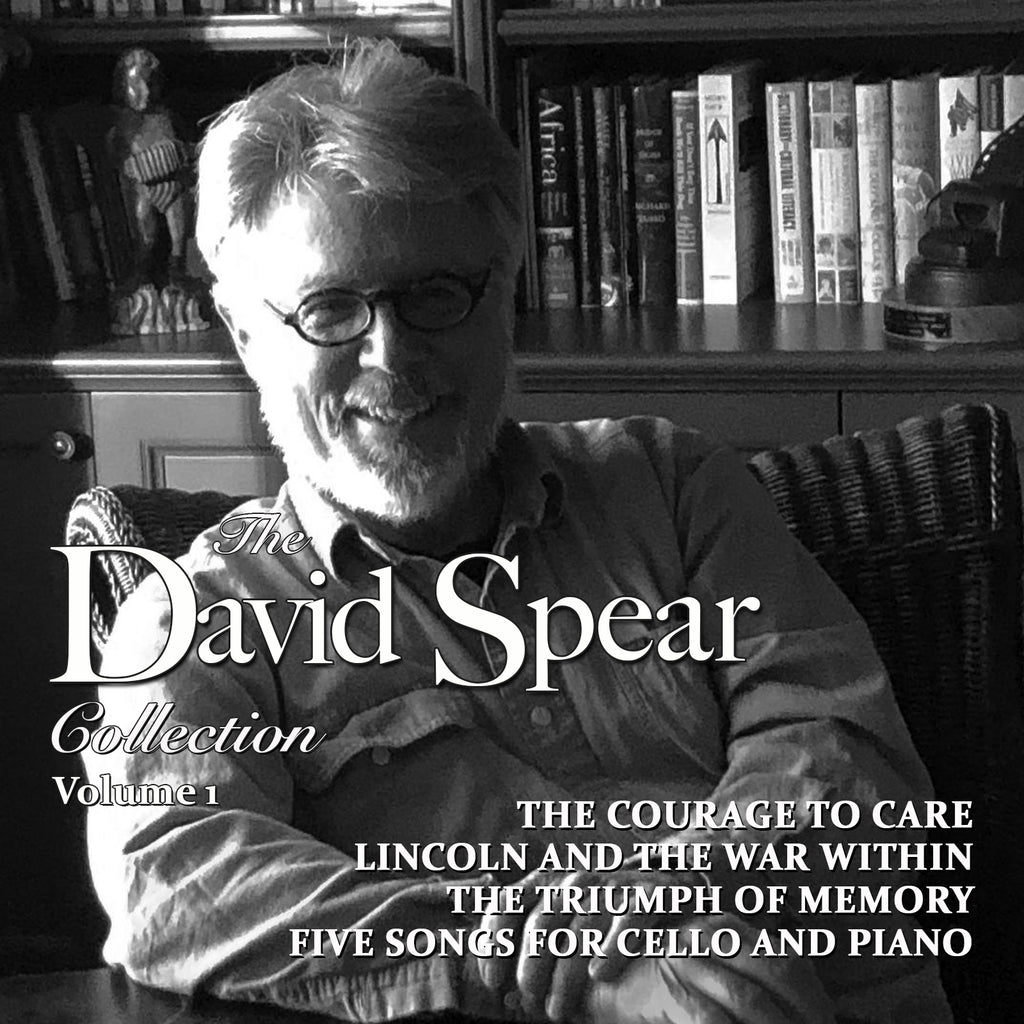 Zitat
ZitatDragon’s Domain Records, to be distributed through buysoundtrax.com, presents THE DAVID SPEAR COLLECTION, VOLUME 1 , featuring music composed and orchestrated by David Spear for three projects from his filmography. This album collects music from two historical documentaries, one historical docudrama, and an assortment of intimate duet performances intended to offer a musical portrait of composer David Spear
THE COURAGE TO CARE is a 30-minute Holocaust documentary made in 1985; the film was nominated for an Oscar for best documentary short subject. The film was directed and produced Robert H. Gardner, with Richard Kaplan serving as an associate producer in the field shooting the testimonies; it was he who brought Spear into the production as composer, having known him from previous projects. The film, through interviews and location filming, recounts how many Jews were able to survive because they were rescued by non-Jewish people who risked their own lives to put them in their basements or in their closets or hide them from the Gestapo or the Nazis. Spear wrote the score for a quartet (viola, cello, clarinet, and piano), with Spear playing the piano himself.
LINCOLN AND THE WAR WITHIN was a PBS Civil War dramatization focusing on the first few weeks of Lincoln’s presidency, which were crucial for the direction the country would take. Lincoln had to bridge the gap between the North and South while navigating the conflict that he had with William H. Seward, whom he had appointed his Secretary of State despite their longtime rivalry. Spear scored the film to be performed by a nonet—nine musicians, playing flute, oboe, clarinet, guitar, piano, and a string quartet (two violins, a viola, and a cello).
THE TRIUMPH OF MEMORY was a follow-up to THE COURAGE TO CARE, reuniting Spear with director Robert H. Gardner and associate producer Richard Kaplan. Spear used a similar scoring approach but replaced the viola with a violin for his quartet on this project. In addition, he added a bit of percussion into the mix to give the music a sense of tension, like a ticking clock, as the stories are told and difficult memories flow forth. The main approach to scoring the montages between interviews was similar to that of the previous film, but Spear enhanced his palette to accommodate a slightly different tone, and to convey a little more of a folkish Eastern European sound and melody.
The album concludes with a quintet of Spear’s original pieces performed by the composer on the piano accompanied by Eugene Friesen on cello.
David Spear began his career orchestrating many film scores for Elmer Bernstein including AIRPLANE, ANIMAL HOUSE, HEAVY METAL and GHOSTBUSTERS. After his Broadway debut as Music Director of MERLIN, THE MAGICAL MUSICAL, Spear wrote scores for three Academy Award nominated films: RAINBOW WAR, BALLET ROBOTIQUE, and THE COURAGE TO CARE. He composed the music for the Emmy Award winning National Geographic documentary, SURVIVING EVEREST. One of his first major scores was for the 1981 vampire thriller FEAR NO EVIL, composed in collaboration with the film’s writer/director Frank LaLoggia. He led the Indianapolis Symphony for the 2008 premiere of THE LANGSTON HUGHES PROJECT featuring Ice-T and the Ron McCurdy Quartet. A dedicated educator, Spear served as faculty at Berklee College of Music (1991-1995), USC Thornton School of Music (1995-2006), NYU (2009-2013), and at Portland State as 2017 Artist-in-Residence. His work in academia and industry thrives on decades of creative collaboration with many notable artists, directors and scholars.
Dragon’s Domain Records presents THE DAVID SPEAR COLLECTION, VOLUME 1, featuring music composed by David Spear for THE COURAGE TO CARE, LINCOLN AND THE WAR WITHIN and THE TRIUMPH OF MEMORY for the very first time on compact disc. The music has been mastered by James Nelson at Digital Outland and the liner notes have been written by noted author Randall Larson, with the participation of the composer.
THE DAVID SPEAR COLLECTION, VOLUME 1 is a limited edition release of 500 units. THE DAVID SPEAR COLLECTION, VOLUME 1 is expected to begin shipping the week of May 4th, 2020 and can be ordered at www.buysoundtrax.com . Composer David Spear will sign the first 100 copies of THE DAVID SPEAR COLLECTION, VOLUME 1 sold through the website.




Quartet Records: WAR GAMES (2-CD) (35th Anniversary Edition) (Arthur B. Rubinstein)
in Scores & Veröffentlichungen
Geschrieben
Quartets Anniversary Edition kehrt noch einmal zurück.
https://www.quartetrecords.com/product/wargames/